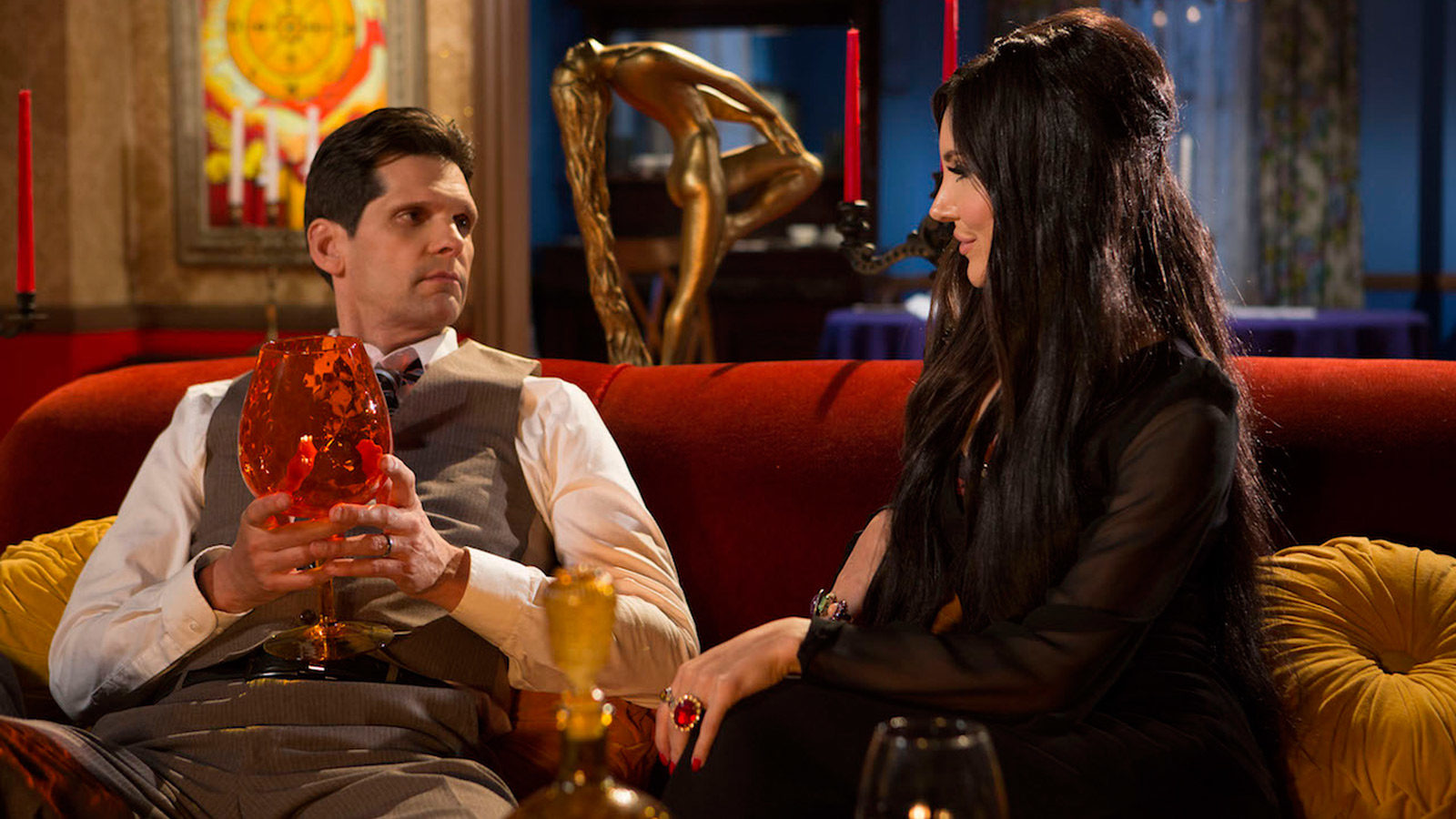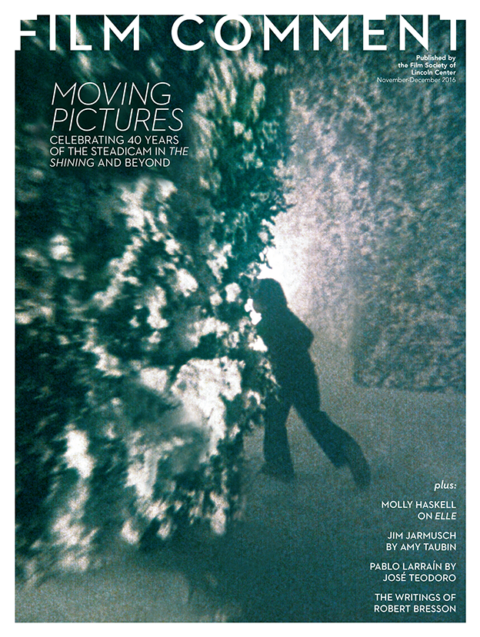By Violet Lucca in the November-December 2016 Issue

Review: The Love Witch
(Anna Biller, USA, Oscilloscope, Opening November 11)
Presided over by the angry spirit of Helen Gurley Brown, Anna Biller’s The Love Witch is a sprawling, beguiling world unto itself. Biller’s sharp film stands in stark contrast to the complacency and crushing safeness of the vast majority of independent films made in the U.S., and is far more than the lighthearted genre pastiche or retrophile curiosity it may seem to be at first glance.

From the November-December 2016 Issue
Also in this issue
Continuing with the concerns of Biller’s past work (2007’s Viva), The Love Witch explores the contradictory conditions under which Western women live: existing somewhere between second and first wave feminism, when the only choice about your body everyone truly feels comfortable with your making is what cute accessory to buy next. The damage and pleasure to be found in this position are contained within Elaine (Samantha Robinson), a widow and practicing witch who relocates to a small West Coast town to begin anew her pathological search for true love. She uses potions to dose men she finds attractive, only to brush them aside when their affections become too desperate and needy—which is to say, a little too feminine. When cut off cold turkey from her love, these men tend to voluntarily or involuntarily disappear from view… The body count eventually points the cops (and her real estate agent) to her love-’em-and-leave-’em ways, nearly bringing about a second coming of the Salem witch trials.
Elaine’s capriciousness may seem arbitrary and irrational, but isn’t that flight from reason what really lies at the heart of attraction? In a moment at the local strip club that betrays her full, repressed intellect, she succinctly says: “They teach that a ‘normal’ human being is a hyper-rationalist, stoic male, and that a woman’s intuitions and emotions are illnesses that need to be cured.” It’s the film’s most quotable line, by virtue of its blistering accuracy, particularly when related to Hollywood cinema of the past century or so.

Witchcraft isn’t the sole great power Elaine possesses. She’s beautiful and poised, speaking exclusively in cooing tones somewhere between a mother’s “Let me see your boo boo” and a lover’s come-hither bedroom whisper (even when she’s not addressing potential mates). As Elaine, Robinson is utterly commanding; her performance is classically mannered, and not a winking attempt at schlocky “bad acting.” Like a black hole of desire, Elaine’s affection is boundless, as is her ability to suck you in.
But in a brief yet crucial scene, we see the opposite side of the soft, amorous image Elaine projects. As she prepares for bed alone, she remembers the chiding voice of her husband and then father, tearing her apart for failing as a woman (not keeping a clean house, not being thin enough). When her husband then praises her for falling in line, Elaine caresses her body and recalls her induction into her coven, involving some questionably consensual sex. The scene ends with her breathing heavily, staring into the camera—there seems to be neither refuge nor independent climax for someone as trapped as Elaine. (The use of audio, not visual flashbacks, drives home how these bonds are invisible, and therefore more pernicious.) Her blue, nearly brow-high eye shadow and exquisite mid-century duds seem anachronistic in 2016 (the same year the film takes place), but so are the ideas about sex and gender that entrap her—and that somehow remain pervasive.
Biller’s film also happens to be wickedly funny. Aside from the offbeat but earnest dialogue, the director has revived the art of the reaction shot, using it to complicate the preceding image or add a greater sense of space. Shot in 35mm, her film displays a technical mastery—framing, color, playing with focus—that is glorious to behold. In addition to writing, directing, editing, and scoring, Biller also did the art direction (teaching herself left-handed calligraphy to make one prop) and created the costumes. As the singular creative force coursing through these different aspects of the production, her aesthetic is formidable (the tea room scenes!) even as the story unfolds at an unhurried pace. At certain points, The Love Witch induces the kind of mild to moderate discomfort brought on by someone wearing too much perfume—potent to the point of being overpowering. Watch with care.




